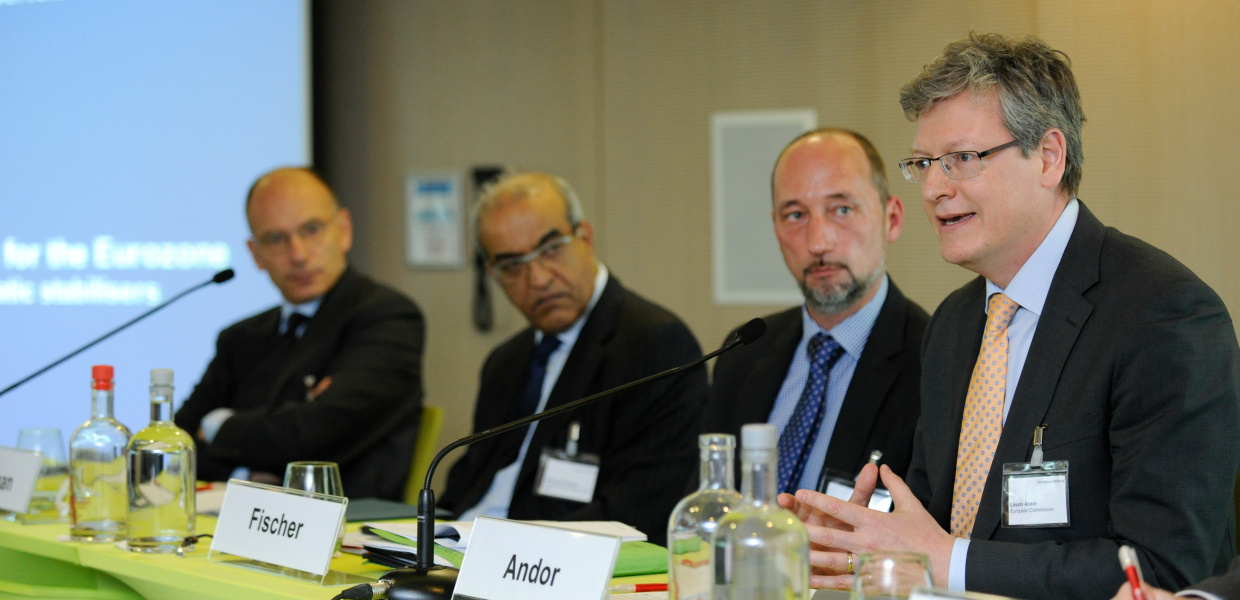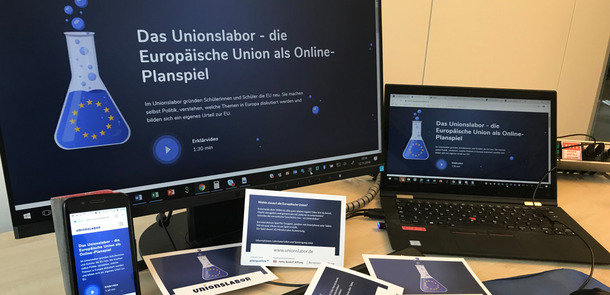How can the European Economic and Monetary Union be improved to help it withstand economic shocks? Can a European Unemployment Benefit Scheme help improve matters by acting as a form of 'automatic stabilizer'? Experts discussed these questions on 20 June 2014 in Brussels.
How can the European Economic and Monetary Union be improved to help it withstand economic shocks? Can a European Unemployment Benefit Scheme help improve matters by acting as a form of 'automatic stabilizer'? If so, how can such economic ideas be translated into political action? These were just some of the questions debated by numerous experts at a conference jointly organised by the Bertelsmann Stiftung and the European Commission which was held on the 20 June in Brussels: 'Economic shock absorbers for the Eurozone. Deepening the debate on automatic stabilizers.'
Over 150 prominent politicians, top officials and scientists participated in this event. Working closely with the European Commission's Directorate-General for Employment, Social Affairs and Inclusion, participants focused on and further developed the key concepts to emerge from the October expert conference on automatic stabilizers.
Speakers on the inaugural panel touched on the idea of a potential link between automatic stabilizers (a separate Eurozone-Budget, European-level Unemployment Benefit Scheme, 'rainy-day fund' etc.) and necessary structural reforms in Member States. Former Italian Prime Minister Enrico Letta stressed the fact that the Italian Council presidency also intended to focus on this topic from 1 July onwards. Furthermore, he warned that the EU is currently dangerously divided.
Thomas Fischer from the Bertelsmann Stiftung and Social Affairs Commissioner László Andor stated that previous existing instruments have not been effective and that new solutions are therefore required. Andor pointed out that we are seven years into the crisis and that it is therefore high time to properly consolidate the European Monetary Union.
However, Yves Mersch (Member of the Executive Board of the European Central Bank), remained skeptical. He put forward his view that well-functioning capital markets would provide greater stability than risk-absorption mechanisms such as a European Unemployment Benefit Scheme. He argued that it was more important to give the Banking Union time to develop and fulfil its stabilizing role. A representative of the IMF and the historian Harold James both highlighted the difficulties inherent in attempting to introduce any national reforms via international organizations.
Alongside the conference sessions open to the public, the inaugural panel discussion and the closing debate, participants took part in four workshops where they could also discuss more politically sensitive topics out of the public eye. Here they examined which ideas were the most promising, debated how risks such as 'moral hazard' could best be avoided and discussed the political conflicts which play out behind the scenes. The latter was singled out as being of particular importance and not to be underestimated. Although some of the proposals for a European Unemployment Benefit Scheme have the potential to provide significant macroeconomic stability, this would also have socio-political ramifications. These can either be seen as advantages or disadvantages, depending on one's political stance.
The closing debate acted as a follow-up by examining the political feasibility of the different proposals. Socialist MEP Pervenche Berès stressed the fact that it was high time to take action, accusing the Council of having failed to act. Speaking from the other side of the political spectrum, the conservative Pablo Zalba Bidegain also declared that national fiscal policy alone was not enough.
You can download László Andor's speech, the different presentations and other related documents on the EU Commission Website.



